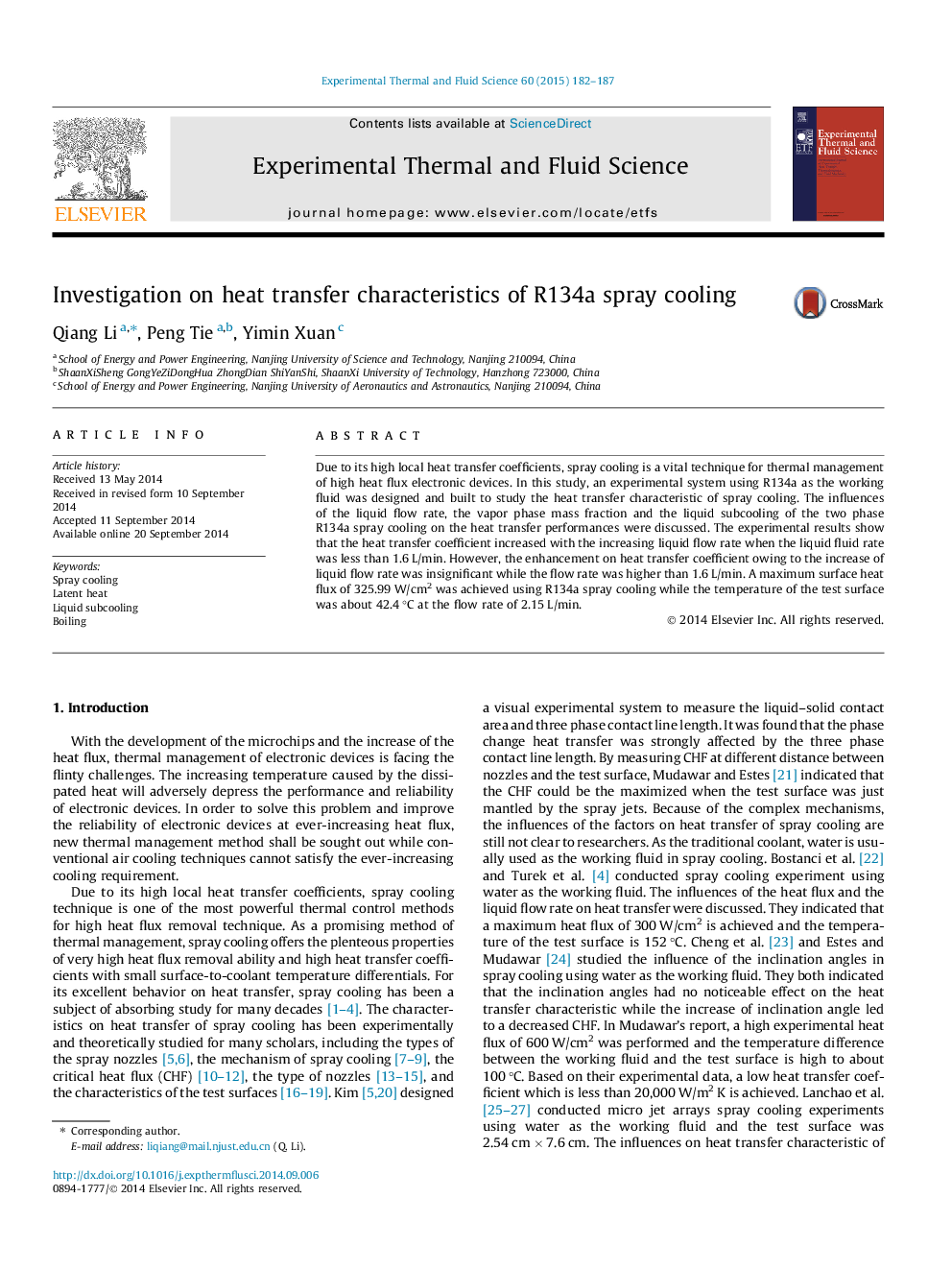| Article ID | Journal | Published Year | Pages | File Type |
|---|---|---|---|---|
| 7052408 | Experimental Thermal and Fluid Science | 2015 | 6 Pages |
Abstract
Due to its high local heat transfer coefficients, spray cooling is a vital technique for thermal management of high heat flux electronic devices. In this study, an experimental system using R134a as the working fluid was designed and built to study the heat transfer characteristic of spray cooling. The influences of the liquid flow rate, the vapor phase mass fraction and the liquid subcooling of the two phase R134a spray cooling on the heat transfer performances were discussed. The experimental results show that the heat transfer coefficient increased with the increasing liquid flow rate when the liquid fluid rate was less than 1.6 L/min. However, the enhancement on heat transfer coefficient owing to the increase of liquid flow rate was insignificant while the flow rate was higher than 1.6 L/min. A maximum surface heat flux of 325.99 W/cm2 was achieved using R134a spray cooling while the temperature of the test surface was about 42.4 °C at the flow rate of 2.15 L/min.
Related Topics
Physical Sciences and Engineering
Chemical Engineering
Fluid Flow and Transfer Processes
Authors
Qiang Li, Peng Tie, Yimin Xuan,
